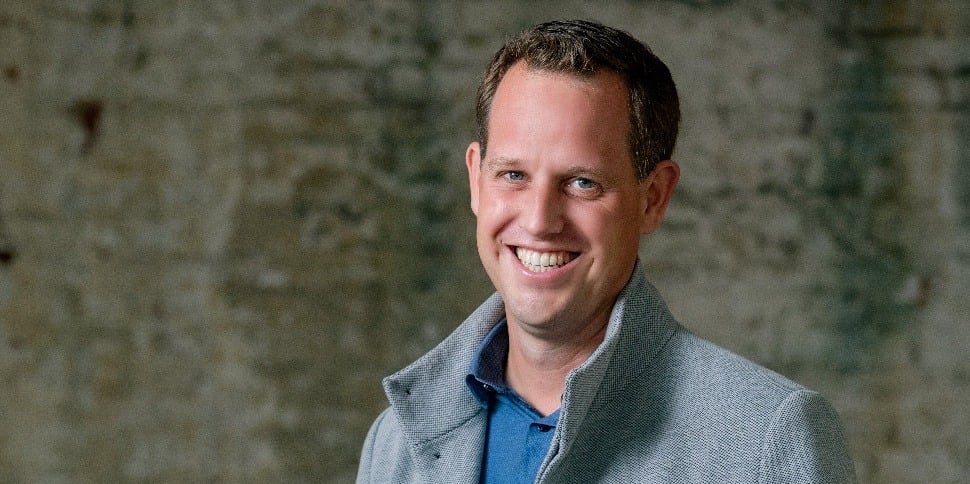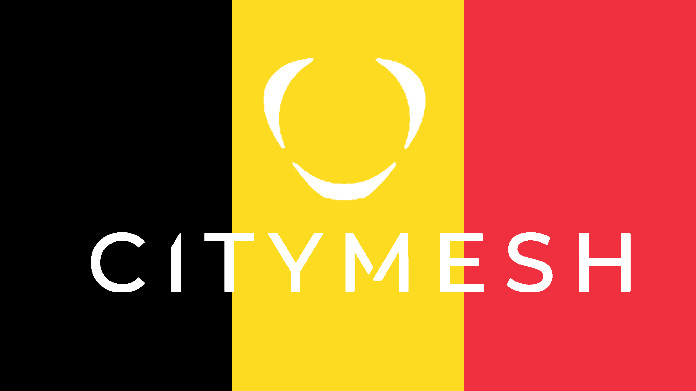On the face of it, the acquisition of local internet service provider EDPnet by Belgium-based Citymesh, which describes itself lately as a telco “challenger” brand in its home market, holds limited interest – to RCR’s enterprise readership, at least. But in ways, the deal tells the unlikely story of a private 5G tech-co specialist that became a public 5G telco challenger brand, whilst never veering from its original vision to serve the developing Industry 4.0 market.
The circumstances of EDPnet’s troubled ownership are interesting, insofar as the company filed for bankruptcy last winter and sold (for €20.5 million) to operator Proximus this spring, only for the local competition authority to force its resale in the summer, which is where eventually Citymesh stepped in. But the real diversion is to chat about its parallel activities in the private 5G market – where Citymesh can hardly be considered a ‘challenger’ – and discern how all the pieces might just fit together in a comprehensive Industry 4.0 puzzle.
“We are a tech-co first, and a telco second,” says Mitch De Geest, chief executive at Citymesh, as a reminder of its roots. He explains away the new deal for EDPnet in terms of its Digi Belgium joint venture with Romanian outfit Digi Communications, which (via cable subsidiary RCS & RDS) runs ‘challenger’ networks in Spain, Portugal, and Italy, as well as its home country. De Geest says: “It was the last remaining independent operator in Belgium; all the others have been acquired by the big three operators. It is a perfect fit for our national MNO strategy. We have acquired 50,000 fixed line customers and 60 staff – which already know the consumer and enterprise markets very well.”

In June, Digi Belgium spent €114.33 million for the rights to frequencies in the 700 MHz, 900 MHz, 1800 MHz, 2100 MHz, and 3600 MHz spectrum bands. In August, the joint-venture firm announced a five-year national roaming deal with Proximus to provide cover while it constructed its own network in the country; it also confirmed the acquisition of 400-odd antenna sites from Proximus to kickstart the rollout. “We acquired the largest portfolio of [public] spectrum in 2022, but we are still rolling out the public network,” says De Geest. In truth, the deal for EDPnet sounds like a useful piece of business; but it’s hardly the real Citymesh story.
Because Citymesh, owned by IT group Cegeka, is running three other units in tandem, which are variously more developed and dynamic than a challenger network selling straight telecoms to consumers – even if it is seeking to disrupt incumbent operators Proximus, Telenet, and Orange along the way. The most significant of these is its private networks business, which owns dedicated spectrum for private LTE and 5G in Belgium at 3.5 GHz (acquired way back in 2015) and 2.6 GHz (in 2022); the latter was extended last year with a further 45MHz (TDD) tranche, acquired from Dense Air. It can also make spot usage of the new Digi Belgium airwaves for private 5G.
“Our spectrum portfolio is solid,” says De Geest. The Dutch regulator has just declared open season on the parallel 3.6 GHz band in the Netherlands. For its part, Belgium is yet to release dedicated mid-band spectrum for individual enterprises, which means Citymesh’s licensed 100MHz chunk of the 3.5 GHz band, which has multiplied over eight years and stretches into the North Sea, exists as the primary vehicle for cellular-geared Industry 4.0 in the country – and has afforded Citymesh a big headstart in the global private cellular market. “No private spectrum is available. But we have our own, and we’ve been able to deploy since 2015. We were one of the very first in Europe,” he says.
All along, it has worked with Nokia; sometimes, typically in smaller venues, Citymesh deploys a core network from Athonet instead, says De Geest, but the radio units are always from the Finnish firm. Alongside, and almost as keenly, the same Citymesh unit is selling (private) Wi-Fi on a grand scale – to cities and venues. “We have deployed WI-Fi in 100 cities in Belgium and the Netherlands, and in train stations and public buildings, and museums and stadiums. It is part of a smart city play, but we are getting lots of questions from cities about private 5G now, too.” The other two Citymesh divisions work in tandem with its corporate networks offer.
At a national infrastructure level (also complementing its public network rollout), Citymesh has a decent-looking Sigfox-based (‘0G’) low-power IoT network running across both Belgium and the Netherlands. It acquired the Belgian side from ENGIE in 2021 and the Dutch side from VolkerWessels at the start of 2023. ENGIE had around 250,000 Sigfox-based IoT devices on its network when it sold up. Citymesh has since connected 300,000-odd water meters from Waterlink in Antwerp, and has useful public references with food retailer Ardo Group (to track 400 containers) and hospital group ZNA (for tracking blood-transport).
De Geest comments: “There is a lot of stuff going on with IoT, mostly for track-and-trace and logistics, but also for meters, and other smart-city applications.” The Dutch network is newer; its acquisition timed with Sigfox’s own rescue from bankruptcy by Taiwan-based Unabiz, and its (possibly) more careful stewardship of it. But the Citymesh plan is to extend the network into Luxembourg (for the full Benelux experience), and offer “the total package from 0G to 5G” more extensively across Europe – because connectivity doesn’t stop where map borders do,” the company says. It is the same logic, actually, with the public network rollout, and the acquisition of EDPnet.
“We want to stitch all of this together, so enterprise IoT applications of all types can roam between private and public networks.” As well as cities and city-venues, De Geest lists its client and candidate sectors: ports, airports, factories, warehouses. “Schools and hospitals are picking up as well,” he says. “We are really busy.” Its other unit deals with the applications on top; actually, the formal business unit is dedicated to drone services, and was created following its purchase of a local industrial robotics firm called Drone Division. But industrial IoT and AI solutions, including where they are mechanised in aerial vehicles, is a better description of the final piece in the Citymesh jigsaw.
De Geest explains: “Our strategy has always been to build solutions and build value, and not just to build networks. And so we offer support with push-to-talk and -video, and with body-cams, digital twins, automated vehicles – on top of the network layer.” The new drones division (Drones Division) has just launched 70 5G-connected camera-equipped ‘safety drones’ to support local emergency services in Belgium. The new service, branded SENSE, will provide “police stations and fire stations” with a 15-minute visual head-start to collect critical information about incidents before emergency services arrive on the scene.
“We are trying to tie it altogether as a group,” he says, and he bridles a little when it’s suggested his talk about being a ‘tech-co’ is like a digital-change cliche among network operators today. “It is the other way around. Telcos are trying to go to the tech side of things; whereas we have always embedded enterprise technology across all the layers. And we are now becoming a telco as well – which may be at odds with the trend. But we have access to the whole stack – to the tech layer, the network layer, the infrastructure layer, the solution layer.” He says that Citymesh has been reliant until now on incumbents for the national network layer, which sometimes scuppered deals “because of costs”.
He adds: “It is different with us, as well, because we align much better with the types of customers that want private networks. We are a B2B player, at root. B2B is just something we do with Digi. We are not selling connectivity but a whole solution. We are turning connectivity into operational value. Also on the B2B side, we have our own core network to do slices, network-as-code, API-driven connections to ERP systems. And we think 5G exists mainly for B2B applications. Which is why we are winning contracts against the incumbent MNOs, where 90 percent of their business is with consumers.”

